Sustainable Robotics – Artist residency

Each year, Ohme supports and offers its expertise to artists through five artistic and technical residencies. Through this initiative, and according to the specific needs of each artist, Ohme actively supports the creation, production and diffusion of innovative artistic projects, provides solid technical and scientific support in research and development, networks with experts and researchers, and promotes exchanges between art, science and technology.
Ohme launched a call for artists on the theme of sustainable robotics in partnership with the Brussels Institute for Advanced Studies – BrIAS, and with FARI – Institute of Artificial Intelligence for the Common Good, both co-founded and co-led by the Université libre de Bruxelles (ULB) and the Vrije Universiteit Brussels (VUB).
The selected artists are A Two Dogs Company – Kris Verdonck, and Dewi Brunet.
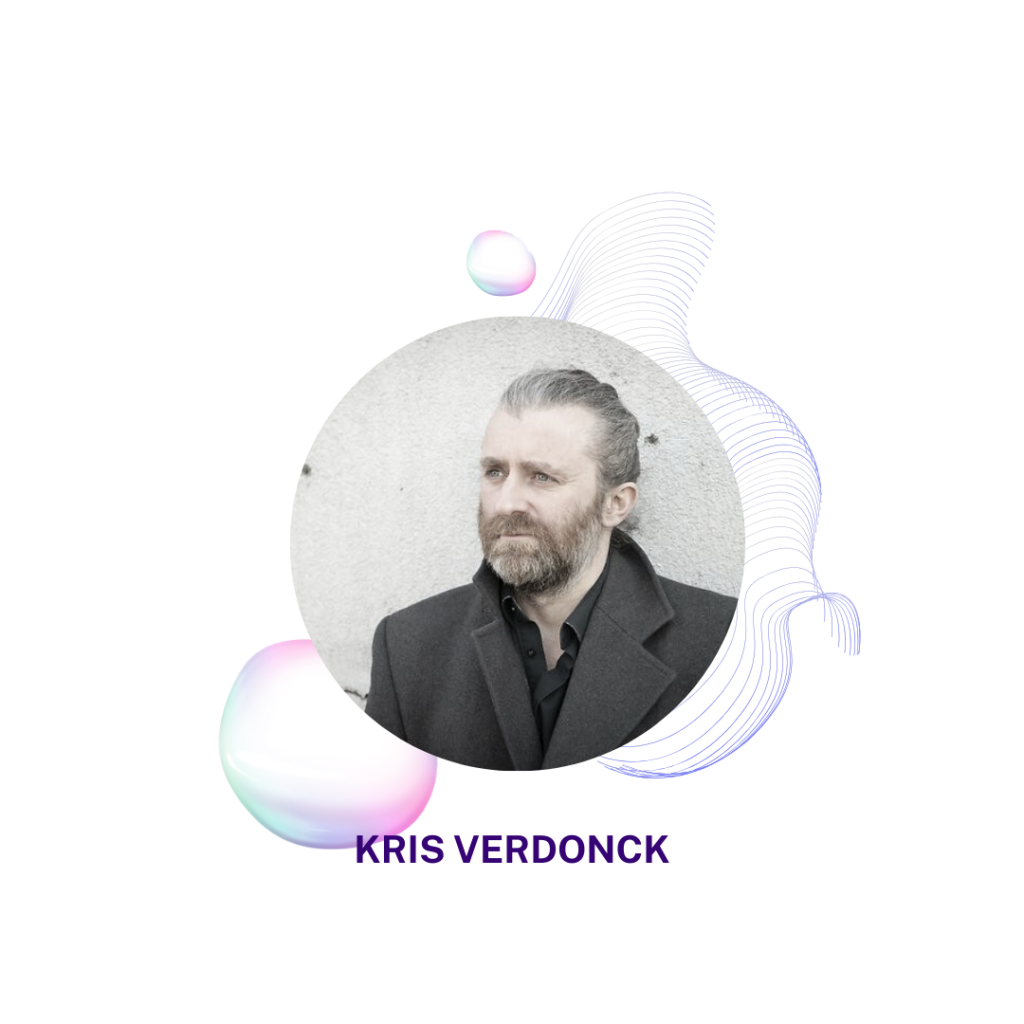
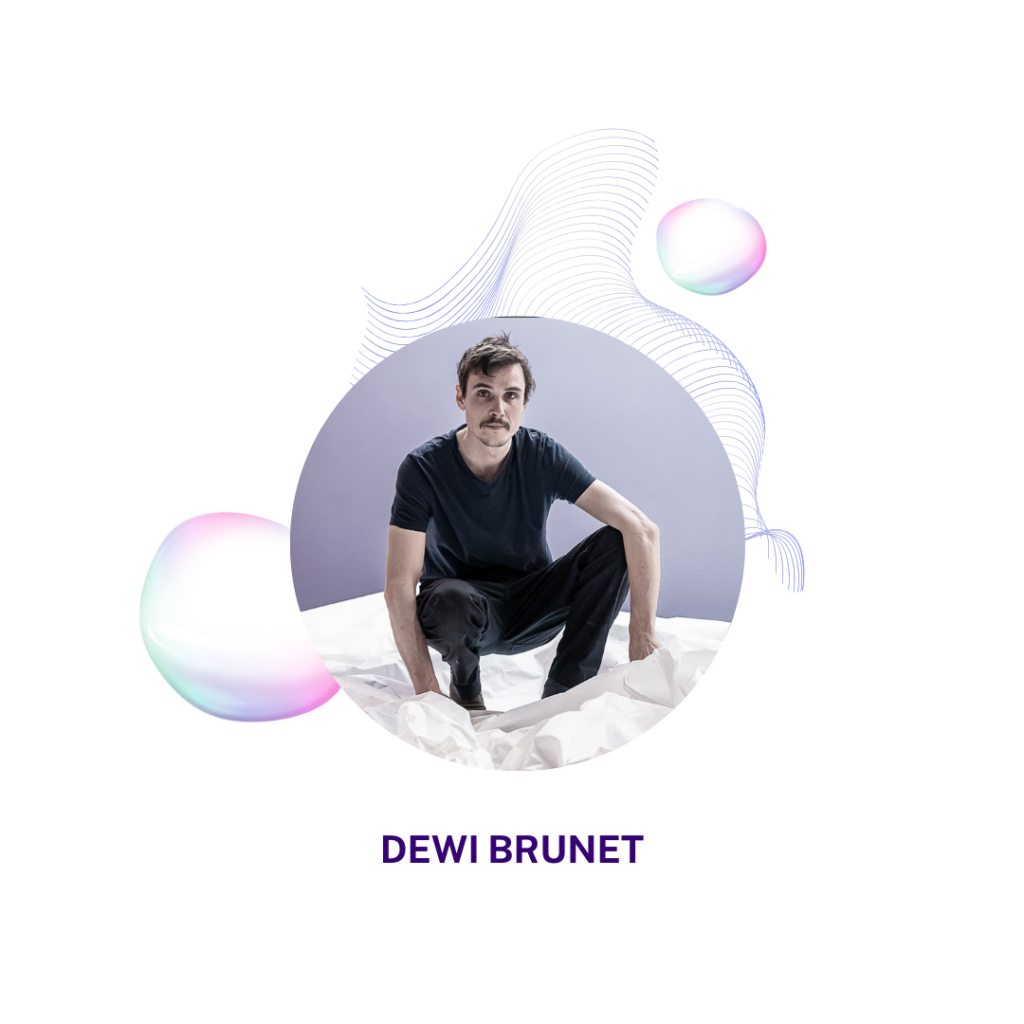
A Two Dogs Company (ATDC) serves as the creative core for Kris Verdonck’s innovative projects in performing and transdisciplinary arts since 2010. Based in Brussels, ATDC operates as a network structure, collaborating with both permanent and freelance talents. Verdonck’s consistent exploration of the societal and ecological impacts of technological advancements fuels ATDC’s endeavors. His multidisciplinary approach blends theatrical and visual elements to create unique artistic expressions showcased in theaters, museums, and public spaces.
ATDC, in collaboration with the Royal Belgian Institute of Natural Sciences (KBIN), proposes the project Garden of the Future. This endeavour seeks to envision a future garden shaped by biodiversity loss and the integration of self-sustaining robots. Through an exhibition at the Museum of Natural Sciences, the project aims to deploy robots mimicking ecological functions of vanished animal species. Powered by renewable energy sources and devoid of traditional batteries, these robots will demonstrate a symbiotic relationship with their environment. ATDC’s artistic expertise, coupled with KBIN’s scientific insights, will drive this exploration, fostering dialogue between art, technology, and ecology.
This residency provides a platform to develop the ‘Garden of the Future’ project further. Through technical and scientific collaborations, the project aims to refine the design and functionality of robots while deepening the artistic and ecological narratives. By leveraging expertise from the arts, robotics, and biology, the residency seeks to create an innovative and educational experience that raises awareness of ecological dynamics and the role of technology in addressing climate change.
Dewi Brunet is a folding artist. Self-taught, he has been practising this discipline for over fifteen years. Still a little-known practice, he sees folding as a technique, a medium of expression and a multi-disciplinary field of research. Today, his artistic projects focus on the sensitive relationship between the living world and robots. Dewi’s practice delves into the realm of Oribotics, a fusion of nature, origami, and robotics pioneered by Matthew Gardiner.
Dewi’s project seeks to blur further the boundaries between living organisms and machines through the creation of innovative Oribotics hybrids. Building upon previous collaborations and explorations, the project aims to cultivate new imaginaries by integrating advanced crumpling and pleating techniques. By expanding reflections to encompass various life forms, including plants, fungi, bacteria, and minerals, the artist endeavors to foster a sensitive perception of belonging to the natural world while addressing sustainability challenges.
The overarching goal of the residency is to deepen the research on organic/technologic hybrids and explore new aesthetic possibilities through advanced folding techniques. By refining existing projects, Dewi aims to not only optimise technical capabilities but also reimagine exhibition spaces for enhanced viewer engagement. Furthermore, the residency serves as a platform to investigate the potential of biobased materials in addressing ecological concerns while bridging the gap between art and science.
Partners
FARI is an independent and not-for-profit initiative that studies, develops, and fosters the adoption and governance of Artificial Intelligence, Data and Robotics technologies in an inclusive, ethical and sustainable way. Opened this year, this institute brings together world-leading researchers and experts in those fields to meet challenges at local level.
The newly founded Brussels Institute for Advanced Studies – BrIAS, aims to expand upon the mission of other IASes as an incubator of ideas and research by focusing on current and urgent themes with a great societal impact. Located in the heart of Brussels, it aims to attract the very best scientists, artists or designers, coming from various fields or countries and with no philosophical or political restriction, and provide the opportunity to work in an atmosphere of complete freedom, collaboration, mutual emulation and cross-fertilisation. In this context, BrIAS aims to facilitate collaborations with countries facing critical challenges pertaining to sustainability.
For its 2024 edition, BrIAS has chosen the theme of sustainable robotics with the aim of exploring how robots and automated devices can contribute to sustainability in a world where they are becoming increasingly present.
International robotics specialists and experts from various fields are invited to Brussels on several occasions between January and May 2024 to discuss how robotics can contribute to facing the worldwide challenges identified by the United Nations’ Sustainable Development Goals (SDGs), such as poverty, inequality and climate change. Particular attention will be paid to issues relating to health, food and agriculture, peacekeeping, sustainable production and the management of electronic waste, as well as those relating to social inclusion, particularly through social robots.
Find out more about the theme
🔗 BrIAS programme
🔗 Sustainable Robotics
🔗 United Nations’ Sustainable Development Goals
Laboratories involved in the project
🔗 SMIT VUB (Studies in Media, Innovation and Technology)
🔗 SAAS ULB (Department of Control Engineering and System Analysis)
🔗 FARI ULB/VUB
🔗 R&MM VUB (Robotics & Multibody Mechanics Research Group)
🔗 BruBotics VUV (Brussels Human Robotics Research Center
Jury Members
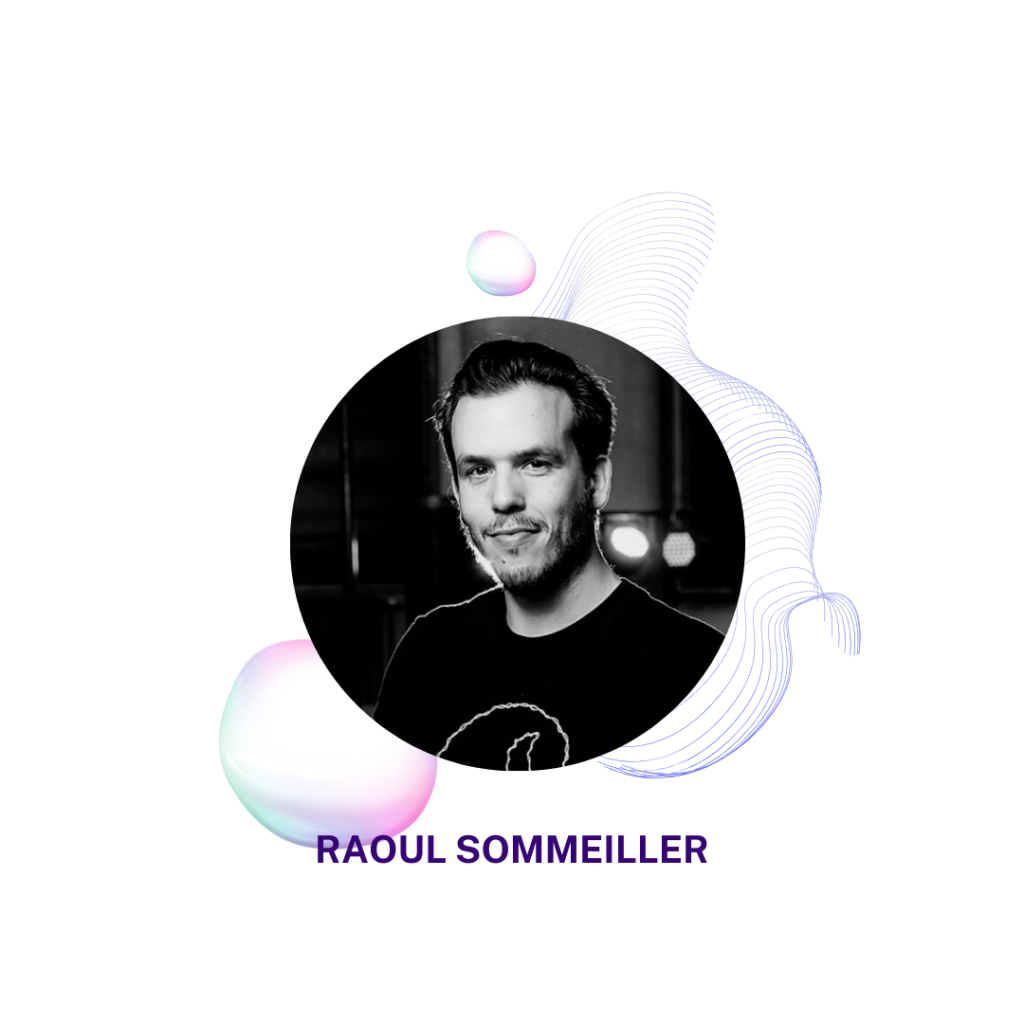
Raoul Sommeillier is an engineer, cultural entrepreneur, scientific researcher and music label manager. His background and career reflect a need to cross-fertilise his diverse passions and a deep desire to break down the boundaries between disciplines. He holds a double master’s degree in engineering specialising in mechatronics, an advanced master’s degree in technological and industrial management, and a doctorate in applied science didactics. His research focuses on scientific preconceptions that act as barriers to learning and on strategies for overcoming these preconceptions. As a practitioner-researcher and FNRS Wernaers fellow specialising in science communication and popularisation, his exploratory and action research also focuses on collaborative methodologies, transdisciplinary interactions and the integration of art and design in raising awareness of science, research and technology. Raoul is co-founder of Ohme, and is responsible for Ohme Academia department, which develops academic projects in collaboration with art schools and universities, and for Ohme Lab department, which uses scientific and technical R&D as a driving force for artistic creation. He is also manager of the electronic music producer OTON and their label Alliance Club.
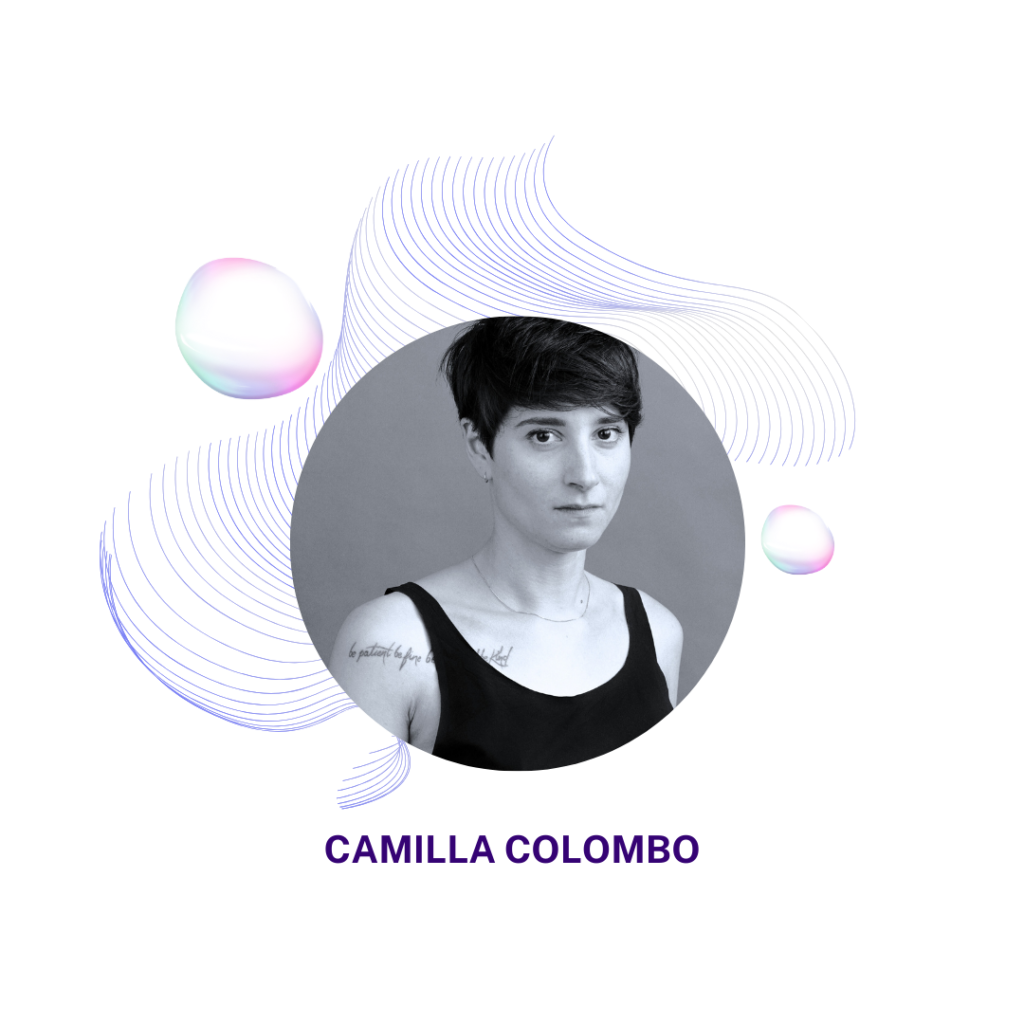
Camilla Colombo is a curator and producer whose practice focuses on arts and sciences.
She curated exhibitions in collaboration with the Museum of Ixelles, at BOZAR, PILAR and iMal in Brussels, and she collaborated with z33 (Hasselt) and Atelier LUMA in Arles.
With a background in the performing arts and in advocacy for the arts at the European level, Camilla worked in Italy, the UK, and Belgium. Interested in hybridisation and crossing of disciplines, she served in art organisations of all sizes as well as with independent artists, focusing on multidisciplinary and multimedia productions.
Since 2016 she is based in Brussels where she began merging her multilayered experiences in her curatorial practice.
She is Ohme co-founder, artistic director and curator. She also initiated Culture Solutions, an independent non-for-profit, bottom-up social innovation group contributing to the excellence of EU international cultural relations policies.
In 2019 she co-founded SALOON Brussels, a network for women working in the art scene of the Belgian capital.
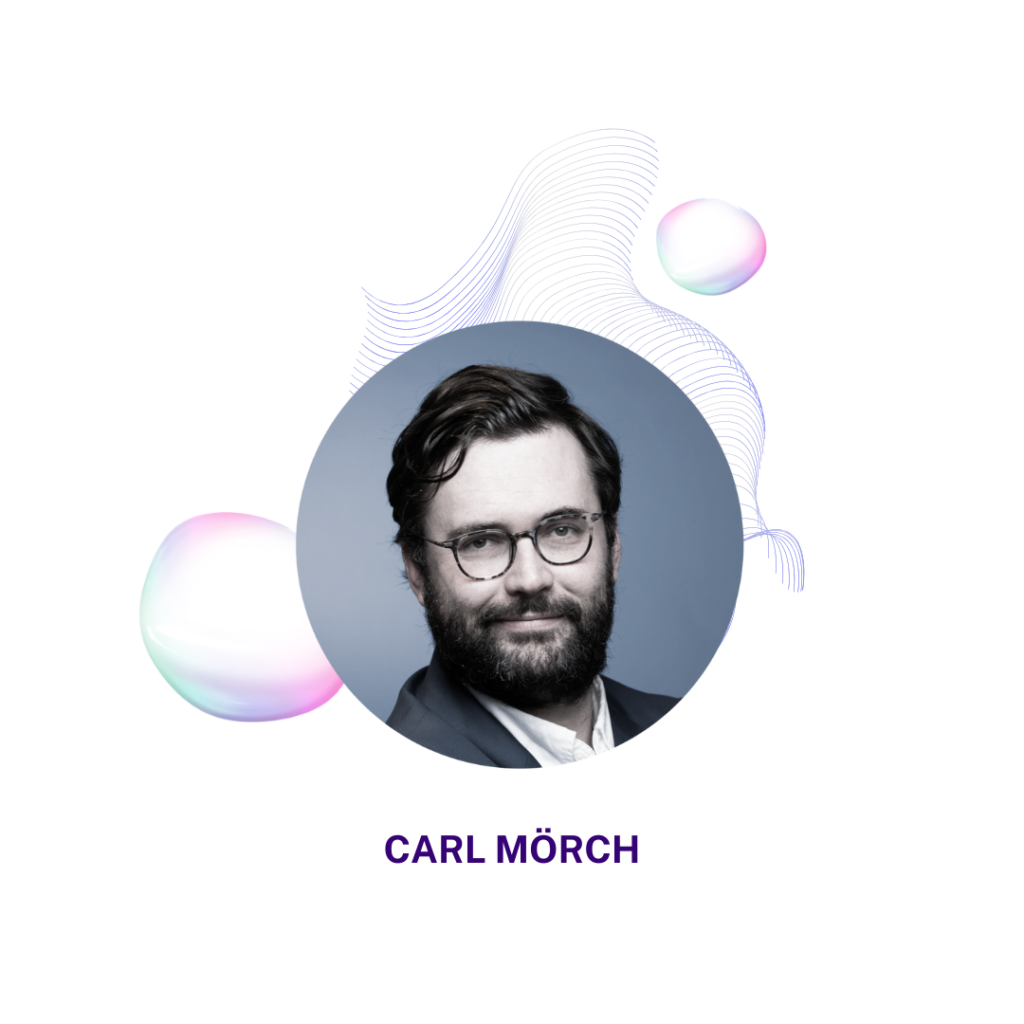
Carl Mörch is co-director of FARI – AI for the Common Good Institute (ULB-VUB) and a member of the AI Ethics & Law Board of the Federal initiative AI4Belgium. He is also a member of the Ethics Special Interest Group of CLAIRE and a co-chair of CLAIRE Brussels office.
Carl aims at fostering high-quality applied projects related to AI, Data and Robotics that could serve the Brussels Region and its inhabitants. With FARI, he wants to support initiatives that can reinforce education around these technologies, and could help bridge the gap with civil society.
He was in 2020-2021 a postdoctoral fellow at the Université de Montréal and Mila – Québec artificial Intelligence Institute. He was awarded a Postdoctoral Fellowship by the International Observatory on the Societal Impacts of Artificial Intelligence and Digital Technologies (OBVIA) in 2020. He is also a lecturer and adjunct professor at UQÀM (Montréal, Canada).
His personal research work is oriented towards the concrete application of high-level ethical principles in applied domains. He is interested in the responsible development of technologies in society, with a keen accent on health care.
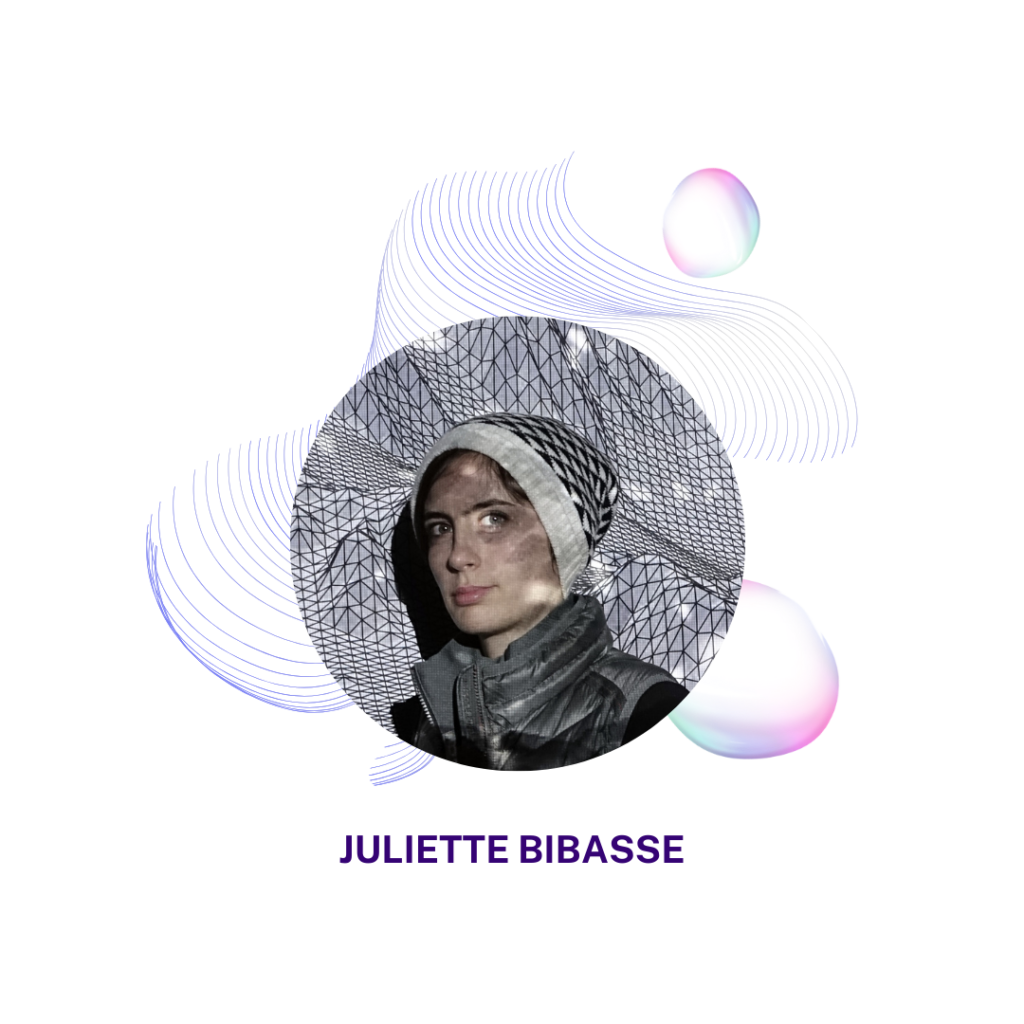
With a background in artistic direction, Juliette Bibasse has a taste for simple and stripped down aesthetics.
Since 2009, she has been applying her skills to the digital art scene, creating connections and opportunities between artists, festivals and cultural actors.
After ten years as an artist’s producer, collaborating on a wide range of projects with many international artists, she became an independent curator and co-director of Studio Joanie Lemercier.
In 2019 & 2020, she was the international curator for STRP festival in Eindhoven.
Since 2020 she is curating a light parcours for the city of Leuven in Belgium, taking place in various heritage venues. In 2023-2024 she is guest curator for LLUM, Barcelona light festival.
Based in Belgium since 2013, she has been an active member of The Federation Wallonia-Brussels’ digital arts scene and is currently vice president of the digital art funding commission.
In 2019 she co-founded SALOON Brussels, an international network for women working in the art scenes.
She is a member of the French network for hybrid arts and digital cultures HACNUM.
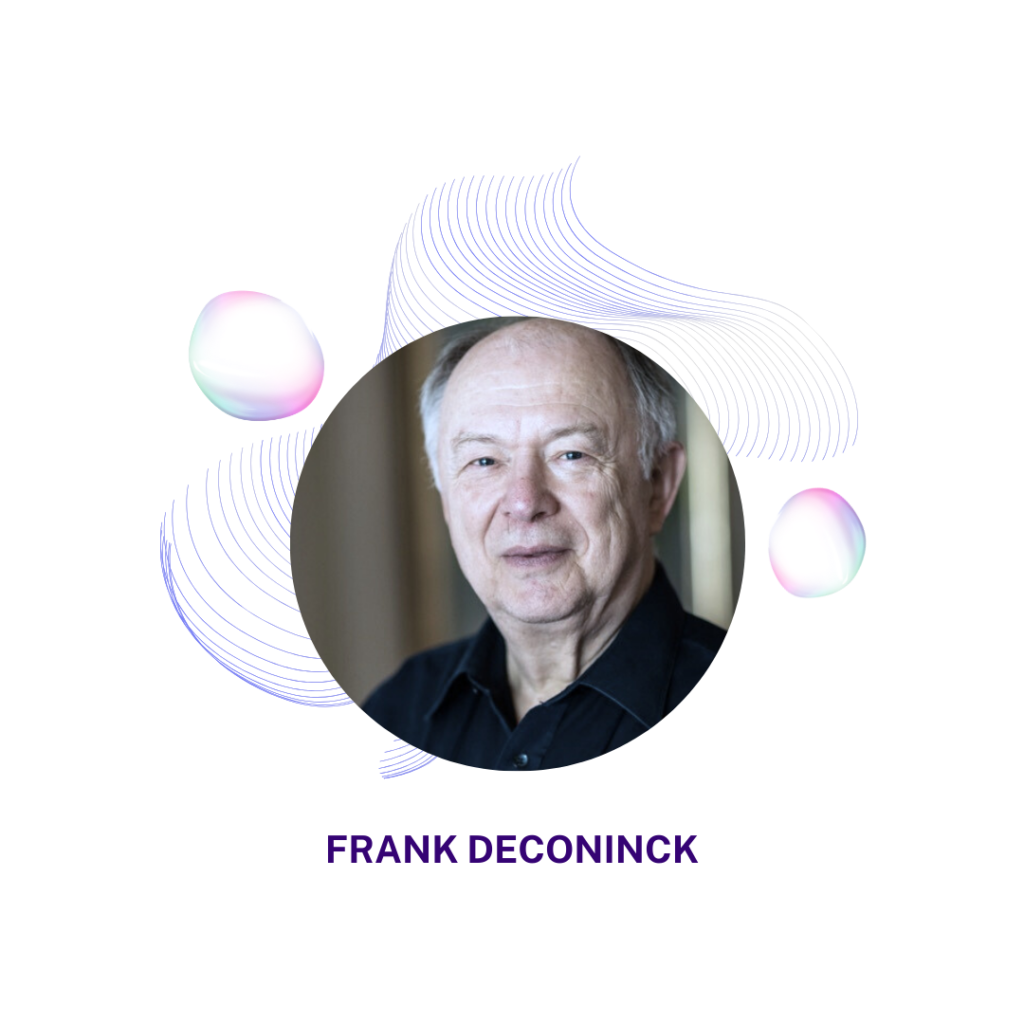
Frank Deconinck is director of BrIAS for the Vrije Universiteit Brussel (VUB). He is Professor em. of Medical Physics at VUB. He was research associate at the University of California in San Francisco (UCSF) and researcher at Brookhaven National Laboratory.
His main research domain was medical imaging and image processing, with a particular emphasis on nuclear scintigraphy and magnetic resonance imaging.
In the nuclear field, he is Honorary Chairman of the Board of Governors of the Belgian Nuclear Research Centre (SCK CEN) and the European Nuclear Society. He coordinates Rad4Med.be, network representing the Belgian expertise in nuclear science and technology applications for healthcare.
In the socio-cultural field he organised, together with Mrs. Deconinck-De Ries, the exhibition ‘Tactile Graphic Art’, accessible by blind and visually impaired persons. The project was selected in 1989 by UNESCO for the U.N. World decade for cultural development.
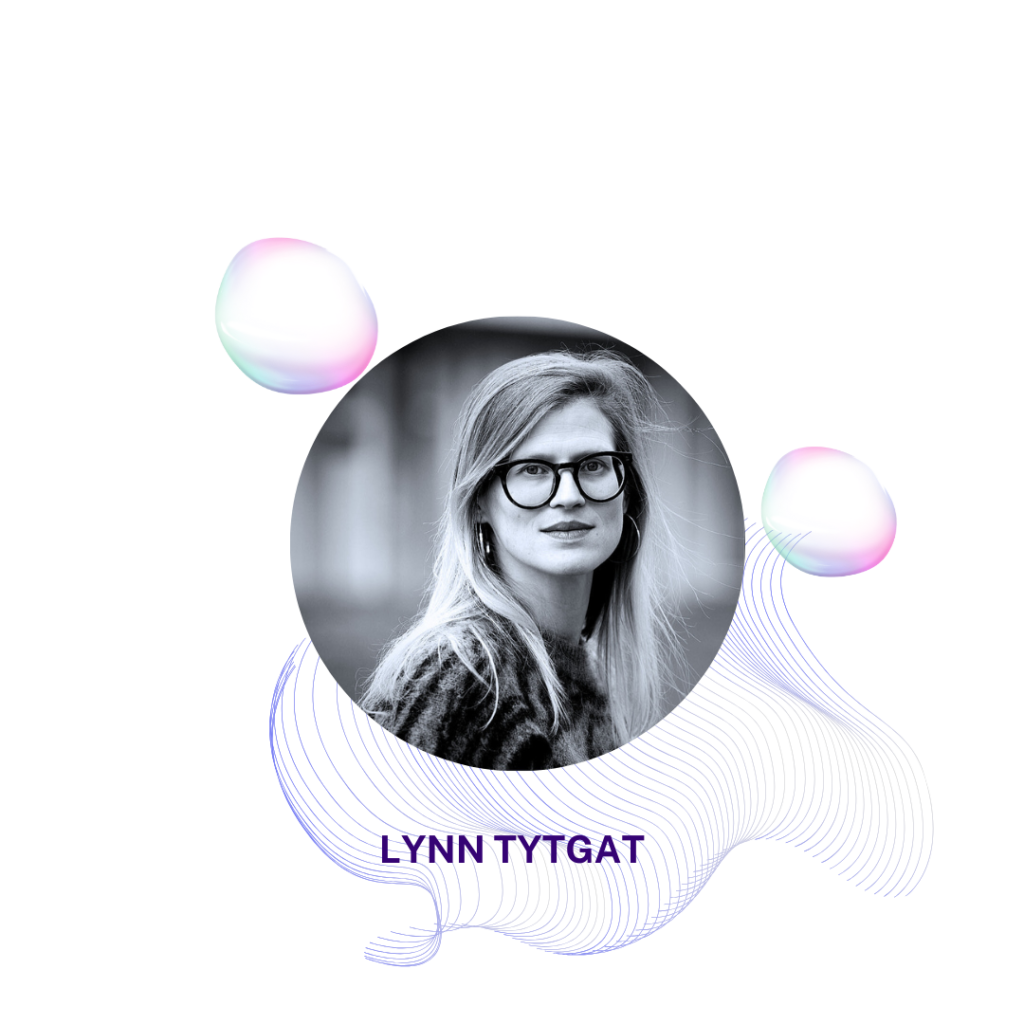
Lynn Tytgat is visiting professor and coordinator of weKONEKT.brussels, an initiative in which the Vrije
Universiteit Brussel (VUB) and Université libre de Bruxelles (ULB) actively contribute to the development of a free, connected and resilient urban community. In this context, Lynn works together closely with the art scene and the diplomatic world to enforce the synergies between education, science and art. Among other things, she is the driving force behind Mindblowers and Homo Roboticus.
Lynn Tytgat studied Literature and Theater Studies and International and European Law at the VUB. She also followed an advanced management course at Solvay Brussels School. Lynn built out her diplomatic and international career in New York, Paris and Brussels, where she amongst others worked for UNESCO, United Nations University and the permanent representation of Belgium at the United Nations.
Today, she works for the Strategy and Policy Unit of the VUB. Lynn is a Belgium’s 40 under 40 Fellow and serves on several boards of directors such as Ancienne Belgique, Cinematek, MAD Brussels and Brusseleir.
Project Partners

This programme is organised thanks to the support of Innoviris and Fédération Wallonie-Bruxelles
